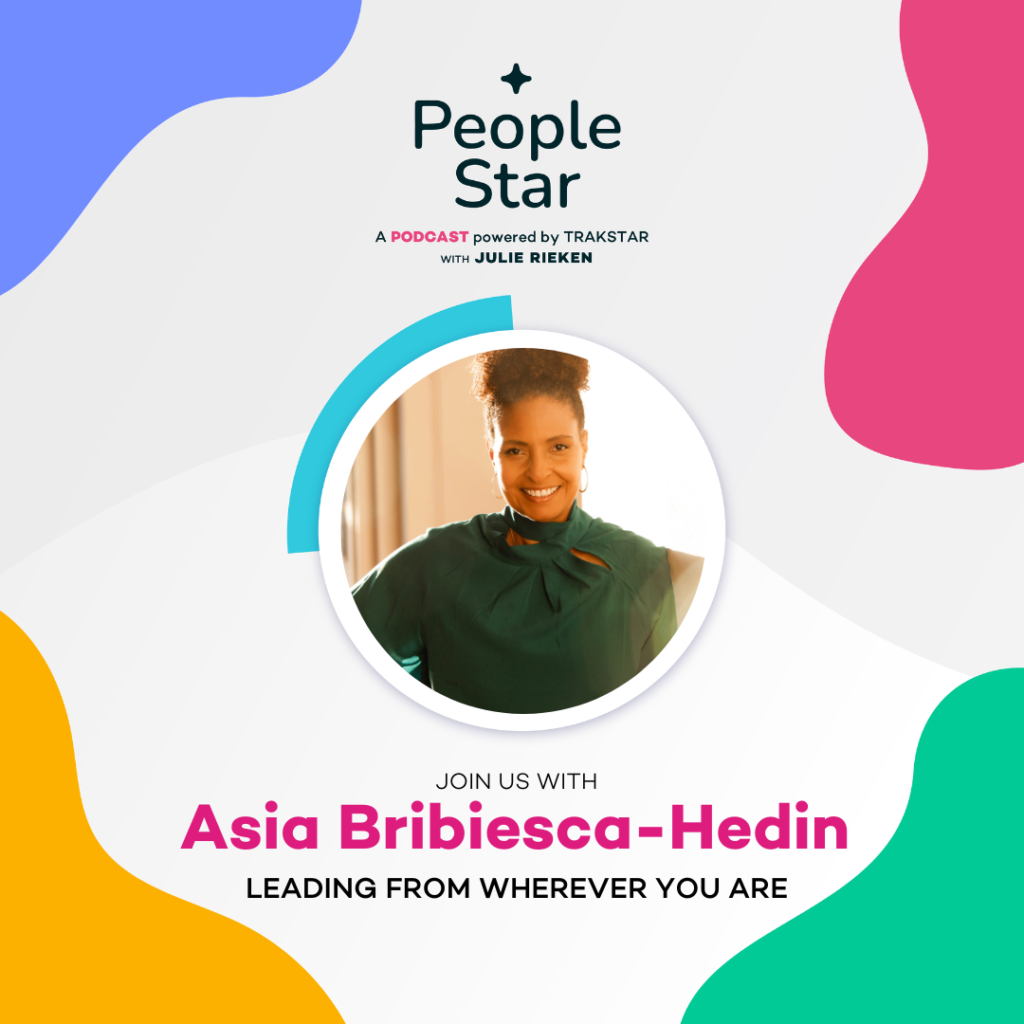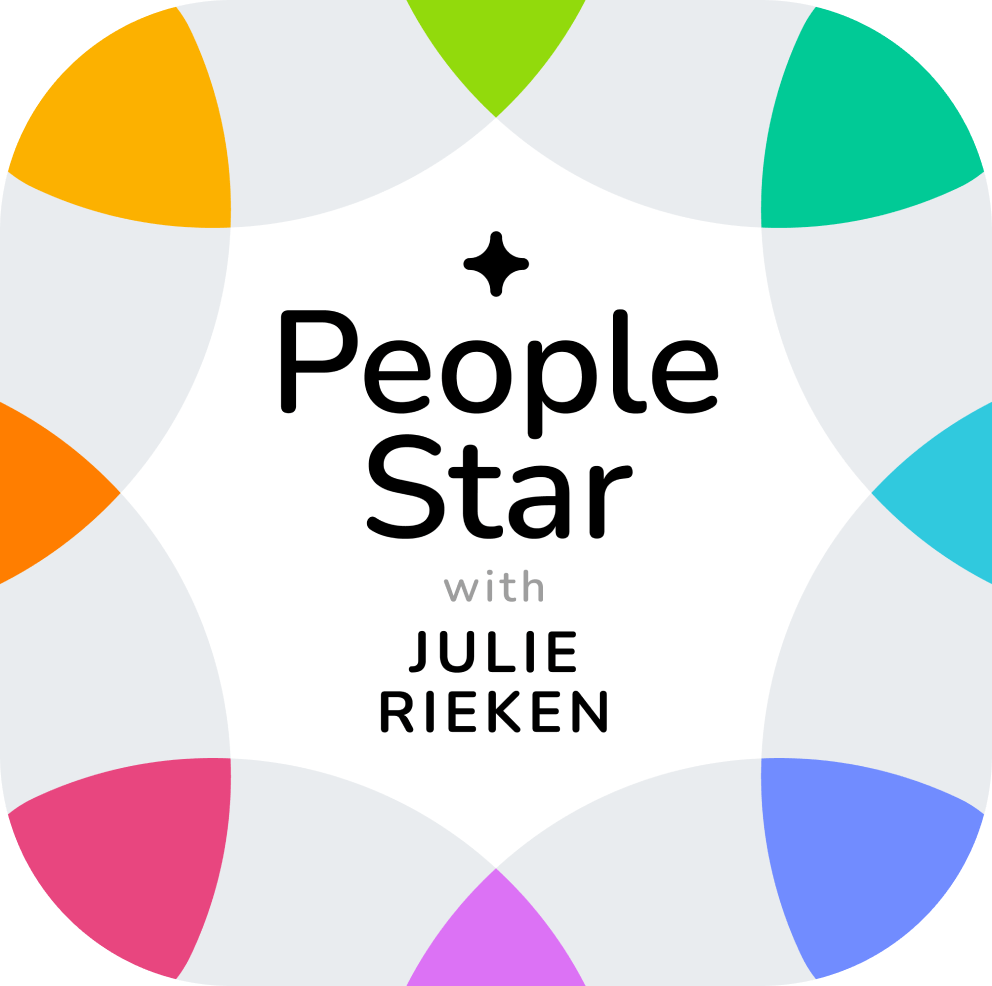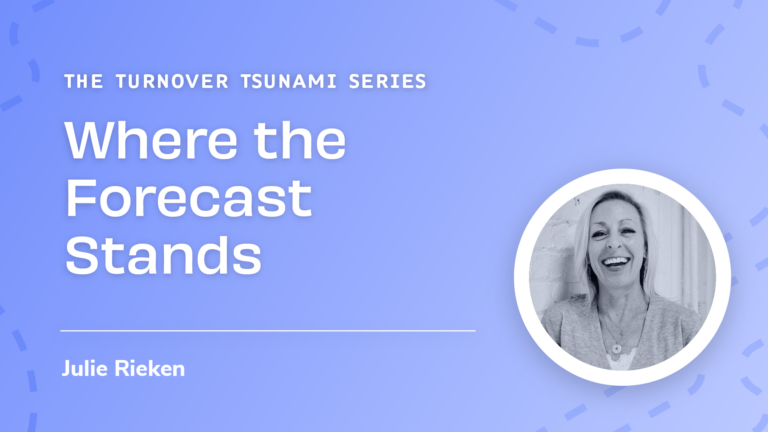PeopleStar_Asia Bribiesca-Hedin: this mp3 audio file was automatically transcribed by Sonix with the best speech-to-text algorithms. This transcript may contain errors.
PeopleStar Intro:
Welcome to the PeopleStar Podcast. We deliver leadership perspectives from industry experts on their people, architecture, routines, and culture as they solve HR's newest challenges. And now your host, Julie Rieken.
Julie Rieken:
Hello podcast listeners. Julie Rieken, host of the PeopleStar Podcast. And today, I am really honored I've got Asia Bribiesca-Hedin, who has a 20-year strategy background in helping leaders confidently make decisions that support priorities. Asia, you started your career as a consultant with Ernst & Young, you are a trusted advisor to executives across a lot of industries, and you are the founder and CEO of Bridgewell Professional Services, where you help organizations bring strategic lenses to empowering individuals to become the chief strategists and head decision-makers in their careers, communities and lives, I think we all want that. That's a super cool bio. Tell us just a little bit more about how you got here so that our guests know who you are.
Asia Bribiesca-Hedin:
Absolutely. Thank you so much for having me, this is fun! I've been looking forward to this conversation. So, I actually started in, to give you a little background. I'm an immigrant, been in the US since I was two, was born in Cuba, came with my mom and, and our family, and a single mom, so she worked really hard and not speaking the language kind of tried to give us any tidbit, any advantage she could figure out. So while she was cleaning floors, she was paying for me to have French lessons, you know, things like that, because she distinguished that there were certain things that seem to almost carry more weight than other things, right? And that's what I think about as being strategic. And so I don't ever really think about it that way. But when I look back at my mom, I'm like, wow, talk about being strategic and like, kind of like creating results no matter how little you started out with, right? And so I bring that up because I feel like that's a lot of what got me to what I'm doing today and where I am today, where, you mentioned that I started with Ernst & Young. I actually started my career, my real career as a civil servant. I worked with the water company for the city of Los Angeles. But there is something they did there that was amazing, and that is that they paid for your education 100%. And I didn't understand how everybody didn't have ten degrees. I was like, how does everybody not have multiple bachelor's degrees, and who knows what else? Because they pay 100% no limit at the time. I think now there's a limit, no limit at the time. So while I was working full-time for them, I continued going to school, I never actually stopped going to school. And I got my bachelor's from Pepperdine while I was working full time and going to school at night. I went on to get a master's at USC that they also paid for, a master of public administration. But while I was getting that master's, I heard about something called management consulting and I was like, what is this thing they're talking about? And so the more research I did, the more it sounded like just one big puzzle and case study, both of which I loved. And I was like, that's what I got to do. And I realized the shortest path to get there was to get an MBA. So I found my way into a fantastic MBA program, got into USC, and that was kind of the beginning of that whole next chapter of partnering with leaders to, really to bring priorities to fruition, right? Because there's no lack of great ideas and strategy and intentions out there. Where we see things fall apart is really in the execution, and that's a whole other conversation. But, but that's what has me in this space. I like the puzzle of it,I'll, I particularly love what the impact or importance of our ability to make good decisions on those outcomes. We sometimes think that it's all about the circumstance and like, did everything fall into place? Does it look right? Did I get the perfect team members, did I say it correctly? And I just wish if only more people knew that it's not about everything going according to plan, but how will you plan for when things don't go, if that makes sense?
Julie Rieken:
This is so cool. First of all, the story about your mom is really compelling, that she would help you see that some things were more important than others and how to pull out, because that's what strategy is, right? It's, it's prioritizing things and how you've taken that lesson and applied it to leaders from a young age, and seeing that connection is so cool. And that, that maybe leads to one of the topics that I'd like to talk about today. Sometimes we think that leaders have all the answers and they know things that we don't, and there's things that leaders do, and things that leaders don't do. And one of the most interesting things that you and I connected on was how leaders sometimes lead by omission or by, in my Catholic Background, co-mission, the things that we do or the things that we don't do establish our leadership style. And I'm thinking about your mom and connecting that like she knew some things are more important than others. Can you just talk to us a little bit about leadership styles, what you've seen, and talk to me about leaders that lead by doing things and by not doing things.
Asia Bribiesca-Hedin:
Yeah. So yeah, I know there are so many places we can go with this, but definitely tying it back to the way we make decisions. So a lot of what I do is focusing on the quality of our decisions because we don't, we don't do that like we don't think about the quality of our decisions. We just think we make decisions to the best of our ability based on the information at hand, and we go from there. But the reality is that the quality of our thinking, that is, that's the seed that's going to allow us to do certain things or not do certain things, right? So you're talking about omission and co-mission, and I love that, I love that, I've never heard it said that way, but I love that concept. And so as I think about that, we do look to leaders assuming that they have the answers and that's okay, that we misunderstand that, let's say, as part of the community or whatever the case is. But I think the real problem is, is when the, the leader believes that, it's when the leader believes that they need to have all of the answers is where I think the problem lives, right? When the. Yeah, well I think, you know, think about it. If you believe as a member of a community, a member of an organization, a part of a team that we don't have agency in how something goes and the direction we take a solution or something like that, we're going to show up in a very different way, right? If we think it's somebody else's responsibility to find the solution for that, if we think it's somebody else's action that's going to fix what's broken, not recognizing that we're leaders wherever we sit. So I'm really deliberate about this part, I'm deliberate about the way that I define what a leader is, because a leader is someone who elicits the best from themselves and others towards a common goal. It has nothing to do with your title, it has nothing to do with your span of control or your budget or, or anything else like that. It has absolutely everything to do with your willingness to align, right, focus towards what we want to get done. And so going back to omission and co-mission, if you think that you don't have agency or don't have a voice or because you're maybe not at the top of that pyramid, that that you don't actually have the ability to, to make things happen, you're going to show up in a very different way. There are conversations we're not going to have, we're not going to raise our hands to draw light on certain aspects, we're not going to contribute to the best of our abilities, and I think that's such a tremendous loss. And it all comes from that belief that we actually don't have agency in this conversation. That is ….
Julie Rieken:
I just love that, that someone else does because I think so much about our own org here and I don't think we're unique in so many ways, but sometimes I hear things like the powers that be and I'm like, but you're a part of the powers that be.
Asia Bribiesca-Hedin:
Right?
Julie Rieken:
We all are a part of that. And I hear that, and I think, gosh, when you talk about your, you phrased it better than I did, but you lead from wherever it is you are, and maybe you could just rephrase that for us. But I think that's so important that you don't have to have the title to lead, you don't have to be, you don't have to have the span of control to lead, that we can lead no matter who we are and where we are.
Asia Bribiesca-Hedin:
Absolutely, avid believer in that, because here's the thing, right? Whether we're as an old movies, the intern and the mail clerk, the mailroom or the board president, that the fact of the matter is that if we have the clarity of thought and mind to understand what's most important, I, you can't see the screen behind me, but it says what's important about this. That's because if we understand what's important, we can kind of bring our best to that and encourage others to do the same. And here's what's important about that, that if we start with the first part of that, of bringing the best of ourselves, that means that, what does that mean we have to leave behind? We had to leave behind ego, we had to leave behind pettiness, we had to leave behind I'm too scared to raise my hand, right? Once we've aligned with what's most important. So if we can align with what's most important, get ourselves to a place where, like, yeah, that's worthy of my contribution, right? We can bring others along the same way. We're not going to walk into a conversation and show up kind of aggressively trying to be combative when we know that what we want is to align people towards that intention. We're naturally pretty smart. Like we know that that's not going to move us towards that intention. So again, a long answer to that. But one of the reasons I also think that's so important. I know this came up in our last kind of conversation when we were chatting, is that in particular when you're working in a large organization or a small organization in particular, the folks in HR or HR leaders. I have a really soft spot in my heart for folks in HR because I think and maybe I'm wrong, but I don't think I am, that the folks that go into HR, they go into HR because they feel compelled to be of service, like they want to be a stand for the people in the organization. They want to, the people side of things to work, like that's why you get drawn into HR. But then the reality is that as much as you, the individual HR leader, wants things to work and do what's best for the individual, the reality is that you're actually there to look out for the best interest of the organization. Now, in great companies, those align, right? What's best for the employee and the individual aligns with what's great for the organization, and the organization knows that. But in a lot of companies, they don't align.
Julie Rieken:
It's … It's hard!
Asia Bribiesca-Hedin:
Yeah, it really is, it really is. And so you can imagine what a toll it takes to live in that space of constant battle between what they say I should do and what my values are telling me I should do, and what I'm actually, what I actually came here for. But I actually came here because I wanted to be in contribution in this way, this way and this way. And all of a sudden, I feel like I'm doing something that's the opposite. But here's the thing. Even in that case, right, through that lens of being a leader and considering what's most important, even when you recognize there are things that you need to get done because that's what the organization brought you in for, how you show up and how you do it is entirely up to you, right? That doesn't mean you can't have empathy, it doesn't mean you can't be of service, it doesn't mean you can't provide support while you're carrying out, what you might have done in a different way had you had the decision to make about the direction the company went. We don't always have that, but we always have how we show up, the responsibility for the energy we bring into that exchange with someone, even if we're giving them bad news, right? The humanity we bring into that moment. But again, none of that is possible when what we're doing is wrapped up in our minds trying to be right or trying to look good, right? When we can set that aside, there's just there's so much more we can do, even when it feels like we're in a tight spot.
Julie Rieken:
I think that's so true. And I and I love this conversation because I just think about everybody being able to show up in a space that contributes and, and how empowered people feel when they do that kind of contribution, and it's important. And how do we foster a place where they do that regardless of title or department, they feel like they can bring their best and make that contribution towards that common goal? And avoid things that are like, they're traps that we get into as humans, right? The powers that be, well, that's somebody else's department, I can't do that. But I think there's places where each of us can contribute in a collaborative way, and it's really healthy for organizations to have people really believe in themselves and contribute in that way. And I think that's the message you've shared, and I like it.
Asia Bribiesca-Hedin:
Okay, good. Yeah, I hope so. I hope everybody can see that. And I know I think I shared just before we got on the call, I was in another conversation, right?
Julie Rieken:
Oh, this …
Asia Bribiesca-Hedin:
Large facilitated session.
Julie Rieken:
Yes.
Asia Bribiesca-Hedin:
And so we, there's this case, that's for a large talent agency I'm working with, and there's a case that we present for discussion where there's somebody who shared an idea and it was kind of set aside, brushed aside, and then a couple of weeks later, the idea came up again, but it was never attributed to the individual who contributed it. And in this environment, having attribution or connection to that good idea or effort or intention, it not only feels good, which it does to all of us, but there are actual real financial implications and career growth implications, right? But here's one of the conversations that came up from it that some people said, well, wow, have, the manager didn't catch that? And that was a failing on the manager, the team managers or team leaders part. And I thought, yeah, but there were several people in that room, how is it that nobody thought to raise their hand and say, oh, hey, wait, … brought that idea up a couple of weeks ago, right? Maybe it wasn't that like what you were saying? How is it that in that environment, no one felt like they had agency to stand for what was right there, right in front of them, right? So that is an example of leading from wherever you are. It would have taken nothing and, and not been in conflict with anything to raise your hand and say, oh, yeah, that sounds like what Mickey was saying, what were you saying about that, Mickey? That's all it would have taken to create a culture where everyone's voices is lifted, right? It doesn't mean every idea is going to be good or taken, but that every idea is welcome. And when there's a good one, we want to make sure we've acknowledged you.
Julie Rieken:
That's such a good point. It goes back to omission and co-mission, right. Which is, there was some omission maybe by other people in the room who thought that the leader had the answers and the leader needed to call it out. But really, anybody could have led from where they were at, anybody could have said to your example, hey, didn't Mickey bring that up? Mickey, tell us more about that idea. Remember when you initiated something around that? That would have been a …
Asia Bribiesca-Hedin:
Yes. That's all it would have taken, right? And all of a sudden, on the other side, Mickey decided now to shut down and forever more feels like they're either not seen or what they have to contribute is not valued. And how is that a win for anybody, anywhere?
Julie Rieken:
Right. Asia, this has been a super fascinating discussion. And I we're going to put a link to Bridgewell, in our show notes. Listeners, Asia helps organizations bridge these leadership gaps and let people find their authentic space of leading from wherever they are. And I'm appreciative of your words of wisdom today, and I hope some people will take a look at what you offer and maybe think about how they can improve their organizations and the ways that people in their organizations lead, with some of your expert advice, this has been great.
Asia Bribiesca-Hedin:
Thank you so much. It's been a pleasure. And for anyone listening, please find me on LinkedIn, I'm active there. I do a free event every month on LinkedIn. Actually this month it's on staying strategic with performance reviews.
Julie Rieken:
That's our game. I want to go.
Asia Bribiesca-Hedin:
Oh, you need to come because, you know, we get reactivated. … All over the place when it comes to performance review. So definitely that's free. Even if you've missed the date, you can go on my, my profile and you'll see the the recording there. So that's, I think that's going to be a good one.
Julie Rieken:
Well, that's cool. I will be there because that's our game here at TrakStar and I would love to learn on how to be more strategic with performance reviews and gain some sage thoughts and advice from you. So we'll put that definitely in the show notes too.
Asia Bribiesca-Hedin:
Awesome.
Julie Rieken:
Thanks for being a guest today.
Asia Bribiesca-Hedin:
Thank you for having me.
PeopleStar Outro:
Thanks for listening to the PeopleStar Podcast. For the show notes, transcript, resources, and more ways to get a seat at the table, visit us at TrakStar.com/Podcast.
Sonix has many features that you’d love including automatic transcription software, share transcripts, collaboration tools, powerful integrations and APIs, and easily transcribe your Zoom meetings. Try Sonix for free today.




